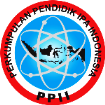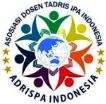Study of Students' Knowledge about Bokashi Fertilizer, Its Benefits for Plants, and Science Education Students' Perspectives on Its Use in Society
Abstract
Understanding the environment and natural resource management is very important for science students because it can support the application of sustainability principles in everyday life. This study aims to describe the knowledge and understanding of science education students at Sultan Syarif Kasim State Islamic University, Riau, about the use of bokashi fertilizer in sustainable agriculture. The research design used is cross-sectional research, which is a type of descriptive research to describe the characteristics or phenomena that exist in the population. The sample in this study was selected randomly using a simple sampling technique, with the number of samples adjusted to the inclusion criteria. Data collection was carried out using a questionnaire consisting of closed and open questions designed to explore students' knowledge about bokashi fertilizer, its ecological benefits, and students' views on the application of this fertilizer in agricultural practices. The data obtained were then analyzed descriptively to describe the level of students' knowledge and attitudes towards bokashi fertilizer. Statistical analysis was carried out by calculating the frequency and percentage of each variable measured. The respondents in this study were students majoring in science education at Sultan Syarif Kasim State Islamic University, Riau. Based on the results of the recorded knowledge evaluation, a value of 69.1% was obtained with a category of strongly agreeing with the statement that the use of bokashi fertilizer can fertilize plants. Regarding the benefits of the activity, a value of 50.9% was obtained with the category of benefits of this program for sustainable agriculture. Based on the results of this study, it is recommended to increase socialization about the benefits of bokashi fertilizer to students and the community. In conclusion, Science students have a fairly good understanding of the benefits of bokashi fertilizer, especially in terms of increasing soil fertility and reducing the negative impacts of using chemical fertilizers.
Full Text:
PDFReferences
Abebe, T. G., Tamtam, M. R., Abebe, A. A., Abtemariam, K. A., Shigut, T. G., Dejen, Y. A., & Haile, E. G. (2022). Growing use and impacts of chemical fertilizers and assessing alternative organic fertilizer sources in Ethiopia. Applied and Environmental Soil Science, 2022(1), 4738416.
Alkatiri, A., Handayani, RTN, Rosa, O., Bahruna, MA, & Arum, DP (2024). Making Liquid Organic Fertilizer (POC) from Household Waste as an Environmentally Friendly Solution for Sustainable Agriculture in Klurak Candi Village, Sidoarjo. KARYA: Journal of Community Service , 4 (2), 360–367.
Alnaass, N. S., Agil, H. K., & Ibrahim, H. K. (2021). Use of fertilizers or importance of fertilizers in agriculture. International Journal of Advanced Academic Studies, 3(2), 52-57.
Azhar, M. F., Rhamdani, F. W., Wulandari, F. S., Pamungkas, A. G., Saputri, J. A., & Andiany, A. R. (2023). Kolaborasi Mahasiswa dan Masyarakat Desa dalam Mengatasi Tantangan Sosial Melalui Program KKN di Desa Pisangan Jaya. Jurnal Ilmiah Dan Karya Mahasiswa, 1(6), 20-47.
Aziz, NIHA, Hanafiah, MM, & Gheewala, SH (2019). A review on life cycle assessment of biogas production: Challenges and future perspectives in Malaysia. Biomass and Bioenergy , 122 , 361–374.
Çakmakçı, R., Salık, M. A., & Çakmakçı, S. (2023). Assessment and principles of environmentally sustainable food and agriculture systems. Agriculture, 13(5), 1073.
Castillo, D. E., Estiller, G. H., Jadie, R. R., Castillo, D. E., Estiller, G. H., & Jadie, R. R. (2024). Extension training on Bokashi fertilizer production. Puissant, 5, 1387-1397.
Christie, B., & Waller, V. (2019). Community learning through residential composting in apartment buildings. The Journal of Environmental Education , 50 (2), 97–112.
De Souza Siqueira, I., & da Silva Sousa, A. (2025). Applied Composting in Education–From Solid Waste to Organic Fertilizer and Beyond in Agriculture 4.0. Intelligent Designs, Innovations and Sustainability in Agriculture, 4, 285.
Ernestivita, G. (2024). Pemberdayaan Perempuan Melalui Pelatihan Kewirausahaan dan Keterampilan Teknologi (Karang Taruna Wanita (KTW) di Kabupaten Banyumas). Jurnal Pengabdian Masyarakat, 1(1), 146-156.
Gashua, A. G., Sulaiman, Z., Yusoff, M. M., Samad, M. Y. A., Ramlan, M. F., & Salisu, M. A. (2022). Assessment of fertilizer quality in horse waste-based bokashi fertilizer formulations. Agronomy, 12(4), 937.
Goddard, M.A., Glanville, H.C., Comadran-Casas, C., Jorat, M.E., Manning, D.A.C., Prendergast-Miller, M.T., & Stott, K.D. (2023). Soil management and engineering for blue-green infrastructure. In ICE manual of blue-green infrastructure (pp. 187–205). ICE Publishing.
Hossain, M. E., Shahrukh, S., & Hossain, S. A. (2022). Chemical fertilizers and pesticides: impacts on soil degradation, groundwater, and human health in Bangladesh. In Environmental degradation: challenges and strategies for mitigation (pp. 63-92). Cham: Springer International Publishing.
Keramitsoglou, K. M., & Tsagarakis, K. P. (2018). Public participation in designing the recycling bins to encourage recycling. Sustainability , 10 (4), 1240.
Kinyili, M., Rashid, M. M., Ngamau, C., & Nyende, A. B. (2024). Smallholder farmers' attitudes toward locally made commercial organic fertilizer.
Lei, X., & Yang, D. (2024). Cultivating green champions: The role of high-quality farmer training in sustainable agriculture. Journal of the Knowledge Economy, 1-31.
Mann, J. R. (2023). A case for composting at school: food system literacy and sustainability education in action.
Mardhiah, H., Nurhayati, N., Marliah, A., Nura, N., & Hayati, E. (2023). Organic Vegetable Planting Management and Utilization of Agricultural Waste as Organic Fertilizer in Lambunot Paya Village, Kuta Baru-Aceh Besar. PESARE: Journal of Science and Engineering Service , 1 (1), 93–105.
Nurlaelah, I., Setiawati, I., Handayani, H., Prianto, A., Alifah, N., & Andini, A. (2023). Training on Making Organic Fertilizer (Bokashi) Based on Fermentation Technology Utilizing Effective Microorganisms in Farming Communities in Kananga Village, Cimahi District, Kuningan Regency. Indonesian Community Service Journal , 3 (2), 199–204.
Pandis, N. (2014). Cross-sectional studies. American Journal of Orthodontics and Dentofacial Orthopedics , 146 (1), 127–129.
Ristiyana, S., Mailidarni, N., Basuki, B., Sari, VK, & Lahati, BK (2023). Introduction to Agricultural Technology. Publisher Tahta Media .
Septiani, M., Nurohmah, A., Khumaira, F., Rohmah, A., Dewi, NS, Ma'rifah, DN, Faizah, N., Azizi, UI, & Purnomo, E. (2021). Community Empowerment with the Utilization of Leaf Waste as Bokashi Fertilizer. Indonesian Journal Of Community Service , 1 (1), 201–208.
Siregar, MAR (2023). The Role of Organic Farming in Realizing Environmental Sustainability and Public Health .
Sulistyo, A., Wahyuni, E., Santoso, D., & CCW, DE (2024). Collaboration between LPPM UBT and KKN students through organic fertilizer production training to support environmentally friendly agriculture in Long Bia village. SELAPARANG: Journal of Progressive Community Service , 8 (3), 2135–2142.
Syahputra, R. (2024). Organic Farming: An Eco-Friendly Solution for Sustainable Agriculture. Literacy Notes , 2 (1).
Tjilen, AP, Simatupang, DO, Tambaip, B., & Riyanto, P. (2024). Utilization of Local Resources for Making Organic Fertilizer: A Sustainable Solution for Farmers and Communities. IKHLAS: Journal of Lecturer and Student Service , 3 (3), 1–8.
Umanailo, MCB, & Lestari, AM (2022). The Effect of Chicken Coop Bokashi Fertilizer on the Growth and Production of Shallots (Allium Ascalonicum). Agrotekma: Journal of Agrotechnology and Agricultural Sciences , 7 (1), 20–27.
Wang, X., & Cheng, Z. (2020). Cross-sectional studies: strengths, weaknesses, and recommendations. Chest , 158 (1), S65–S71.
Yusuf, R., & Fajri, I. (2022). Differences in behavior, engagement and environmental knowledge on waste management for science and social students through the campus program. Heliyon, 8(2).
DOI: http://dx.doi.org/10.24014/jnsi.v7i2.36086
Refbacks
- There are currently no refbacks.

Journal of Natural Science and Integration
E-ISSN: 2620-5092 P-ISSN: 2620-4967
Published By:
Department of Science Education, Faculty of Education and Teacher Training,
State Islamic University of Sultan Syarif Kasim Riau, Indonesia
Mailing Address:
Jl. H.R Soebrantas Km. 15 No. 155
Kelurahan Simpang Baru
Kecamatan Tuah Madani, Pekanbaru, Riau, Indonesia
Email: jnsi.tadrisipa@uin-suska.ac.id
Indexed By:
Journal of Natural Science and Integration is licensed under a Creative Commons Attribution 4.0 International License.


_-_Copyy2.png)






.jpg)
.png)
.jpg)
.jpg)




